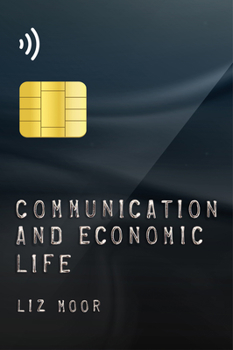Communication and Economic Life
When we talk about media and the economy, 'the economy' is usually understood as the macro economy or GDP, while 'the media' usually refers to television and print news, or the digital output of mainstream news providers. But communication about money and the economy in everyday life is far more wide-ranging than this. It is also changing: opportunities to discuss economic matters - whether public or personal - have proliferated online, while new payment systems and shopping platforms embed economic behaviour more deeply into communications infrastructures.
Challenging earlier narrow definitions, this ambitious book offers a new framework for thinking about the role of communication in our economic lives. Foregrounding the broader category of communicative practices, the book understands economic life not only in terms of the macro economy, but more sociologically as a set of processes of providing for material wants and needs. How we talk about these wants and needs, and our means for meeting them, is how we come to understand our economic lives as meaningful. The book explores how our economic lives are constructed communicatively in a variety of modes that move through, but also exceed, mass media - from the symbolism of credit cards to the language used by economists, and from social media promotion to debates in online forums.
Communication and Economic Life is a vital resource for students and scholars in media and communications and sociology, and for anyone interested in how we talk about economic lives.





